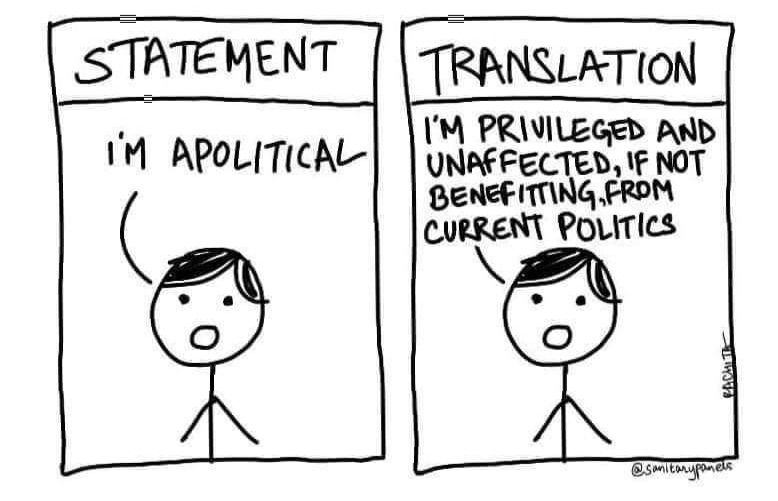Democracy in gender for gender democracy?
- Akanksha Sharma
- Jun 18, 2023
- 3 min read
by Shambhavi Thakur, University of Delhi

The female population, constituting 49.58% of the world’s population, never fails to see themselves against diminutive statistical numbers when weighed up with males in myriad arenas including political spaces. Only 1 out of 4 women hold parliamentary seats today which sketches a clearer picture of the current situation. This is definitely not a neoteric phenomenon and finds its roots from pre-historic times, when notions about women were neatly crafted and passed on with generations. The notions were backed by the biological architecture of women and the assumptions of incompetency in the world sans the four-walled-homes was realised. The discrimination seeped through centuries and here we are, in the 21st century, at the peak of innovation, fantastically equipped with technologies and women still penning down articles to make the world realise their meagre presence.
All we need, at this moment, is a shock treatment and thus, the analysis which follows. Let the author take this opportunity to step into the crowded society's constructs and eliminate women from the political realm. Delving into men’s psychology unravels characteristics like rationalising and quantifying things at hand. It focuses more upon the bigger gains and thus, a mass profit. In the process, veiled issues fail to get recognised and find themselves camouflaged. The male perspective proves to be inefficacious when addressed with qualitative aspects. This stems down to the lack of experience, dealing with the biased positioning of genders and the paucity of stories put down by victims. No doubt, we would end up with policies solving the major problems dealing with quantity but the quality aspect would somehow mark its absence due to the deficiency of seeping into the roots.
But why do we actually need women when men are capable enough to deal with the crisis at hand, irrespective of the method undertaken? It’s no more about the gender distinction but the need for a woman's presence. A study by the United Nations regional body culminated that if women had the same access to employment as men, poverty would shrink between one and 14 percentage points in the countries of Latin America. The consequences of the minimal number of female mass in the political sphere is eventually defogging. A ‘feminine style’ in women's way of political discourse has been emphasised which among other things gives judgement on the basis of lived experiences and legitimising the subjectivity of human reality. Evidence highlights how having women on the policy-making platform benefits not only women but children and the community as a whole. They tend to speak up more about the interests of the needy because of their close engagement with the communities on ground. National Democratic Institute’s (NDI) 35 years of work in over 100 countries around the world boils down to the high responsiveness of women to constituent concerns and encouraging quality of life through promotion of health, education and other key development indicators.
The paradox is that the factors which chain women from holding crucial political powers are the very ingredients backing up the need for women in democracy. Epitomising the above thoughts, women's political participation results in tangible gains for democracy, including greater responsiveness to citizen needs, increased cooperation across party and ethnic lines, and a more sustainable future. An intriguing study presents that an unborn daughter will be 50 before her world offers equal political opportunity and that the baby will be 80 before she has equal economic opportunity. We just need to acknowledge the ramifications of the absence of women and judiciously utilise the powers at play to bring about greater recognition for the female population in the democratic domain. The initial steps would be to deconstruct the preconceived notions about the gender roles which have been plaguing both the sexes at some point and giving them a chance to strike the iron while it's hot.



Comments